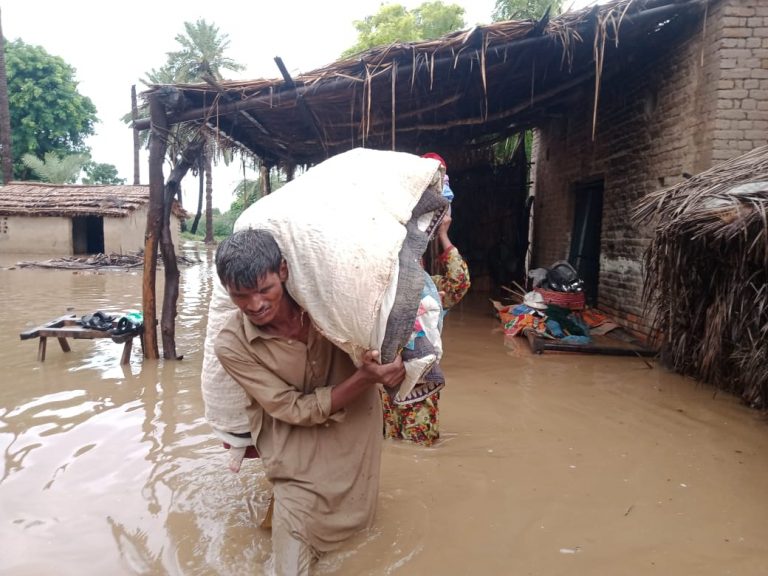
Studies have shown increased short-term and long-term mental health consequences such as depression, post-traumatic stress disorder (PTSD), anxiety, and suicide trends among disaster survivors.
Sindh Mental Health Authority, Sir Cowasji Institute of Psychiatry Hyderabad, the concerned departments of JPMC and Dow University Karachi and LUMHS Jamshoro should send their teams in different areas.
Fadi Qureshi
Natural Disasters are large-scale incidents that are often unexpected and cause death, destruction of property and leave the survivors in a severe state of trauma. Disasters affect millions of people around the globe every year. Unfortunately, millions of people of Sindh and some other provinces are experiencing the same situation due to torrential rains and flash floods since last two months and now they (the people of Sindh) are faced with more horrible situation of inundation caused by Indus River.
Many studies have shown increased short-term and long-term mental health consequences such as depression, post-traumatic stress disorder (PTSD), anxiety, and suicide among disaster survivors. The frequency of such mental health issues is greater in marginalized and vulnerable populations. Among these, Post-Traumatic Stress Disorder (PTSD) is the most common mental disorder and is especially likely to occur with other psychiatric disorders, referred to as comorbidity. What is not well known is that PTSD is commonly accompanied by depression and anxiety.
Children are more prone to mental health complications after a natural disaster because they have little understanding about what is going on, feel less control over the situation, and have least experience coping with difficult circumstances. Children’s vulnerability to stress reaction after disasters depends on their age, cognitive level, exposure to a disaster, and their parents’ or caregivers’ financial circumstances or status after the event. They may also experience PTSD, anxiety, depression, grief, behavioral problems, and academic difficulties.
Although, a number of medical camps have been setup by social organizations across the flood –affected areas of Sindh but the counseling at different levels and awareness raising sessions should also be conducted to address this unseen yet very important issue of mental health and trauma. Sindh Mental Health Authority, Sir Cowasji Institute of Psychiatry Hyderabad, the concerned departments of JPMC and Dow University Karachi and LUMHS Jamshoro should send their teams in different areas.
A natural disaster not only disrupts the quality of life but also creates a significant burden of mental health conditions on an individual and the community. Effective interventions should be given pre, and post-disaster periods to improve the adverse mental health effects of the disaster. The psycho-social education and clinical interventions are expected to provide better outcomes because of the integration of various effective measures. Rehabilitation plans should be made by keeping in mind the cultural context of the community and the needs of the affected population. These actions are indeed the need of the hour during the era of climate change to empower the community in a holistic way, so that they can have resilience and cope with future disasters.
Here are some tips for social organizations to help mental health recovery of affected people after a natural disaster:
The displaced people will take time to adjust to difficult circumstances; arrange support for them from their friends and families; engage them in healthy activities like social gatherings, writing and other creative activities; help them join any support group; engage in healthy behaviors, including getting adequate sleep, eating well, and exercising; re-establishing routines and get involved in positive activities and avoiding making major life decisions during such a phase.
_________________